




“The rise of ChatGPT, a large language model developed by OpenAI, has brought about many benefits in various industries, including education. However, there are also concerns about the potential dangers of ChatGPT in college settings, specifically in terms of cheating and the replacement of human teachers.”
This was part of a response from a website, ChatGPT, when asked to “write an article about the danger of ChatGPT in college and how professors can address it.”
The program is a type of artificial intelligence that interacts with users in a conversational way. It stands for Chat Generative Pre-trained Transformer and it is free during the research preview.
It was trained using reinforcement learning from human feedback. In this training, humans provided conversations where they wrote for the user and artificial intelligence assistant. They added the conversations to the dataset to improve how the AI responds.
USU computer science assistant professor Hamid Karimi has a teaching emphasis in machine learning and using AI in education. He explained how powerful this website can be.
“We can teach the machine basically to learn from this huge amount of data,” Karimi said. “Learn from the entire Wikipedia. Learn from the entire social media.”
Karimi said the machine uses this information to learn how humans write and then create sentences, phrases and expressions which are used to converse with humans.
“We want to mimic what the human does, and even outperform humans in some tasks,” Karimi said. Some professors across the country have looked at how ChatGPT would score on their exams. At The Wharton School of the University of Pennsylvania, the program would have earned a B or B- on an MBA final.
USU director of Student Conduct and Community Standards Krystin Deschamps said the university had three reports of students using the program near the end of last semester.
Deschamps said using ChatGPT or similar programs would be considered cheating.
In article VI-1 of the USU Student Code, cheating is
defined as “using or attempting to use or providing others with any unauthorized assistance in taking quizzes, tests, examinations, or in any other academic exercise or activity.”
After a first violation, a student could be placed on probation. Students with multiple violations or an egregious violation would be considered for suspension. When a student fails a course because of cheating, the violation is egregious.
“The reason a student goes to college is to learn how to think. Part of learning how to think is learning how to write, learning how to present information, learning how to find facts,” Deschamps said. “ChatGPT can dissuade somebody from really learning any of those skills.”
An associate dean and multiple faculty members have contacted Deschamps and are trying to address this issue.
“There’s a discussion among faculty right now about changing the ways that they teach,” Deschamps said.
These faculty members have found a few ways to identify when a student is using the program, including Hugging Face, which is a website dedicated to opensource AI.
“We should think of these technologies as auxiliaries, something that can help us,” Karimi said. “But still, we have the core of education that people and the students should do the critical thinking. Do not think of these as a replacement for the education that we have.”
Karimi said AI plays a large role in education. It is
used in personalized learning, automated grading and plagiarism detection. He also said it can harm critical thinking, and it creates issues with privacy and discrimination.
“AI has this big problem of bias and discrimination,” Karimi said. “We need to ensure that they are not biased against any demographic group, any individuals, any marginalized group.” An example of AI learning bias is when Microsoft created a chatbot on Twitter in 2016. Within a day, the bot had learned from other users and became racist. The chatbot was shut down by Microsoft.
The OpenAI website shares some of the other limitations of ChatGDP. They said it sometimes writes plausible-sounding but incorrect answers. They said it is difficult to address this issue since a cautious model will decline to answer questions it knows.
They have also found the program can struggle depending on the question phrasing. It may not know the answer when first asked, but could answer correctly when the question was slightly rephrased.
“While ChatGPT has the potential to enhance the educational experience, it is important to consider the potential dangers and to use the technology responsibly. It’s important to implement measures to prevent cheating and ensure that students are receiving accurate and unbiased information,” ChatGPT concluded when asked how to address the dangers of ChatGPT.
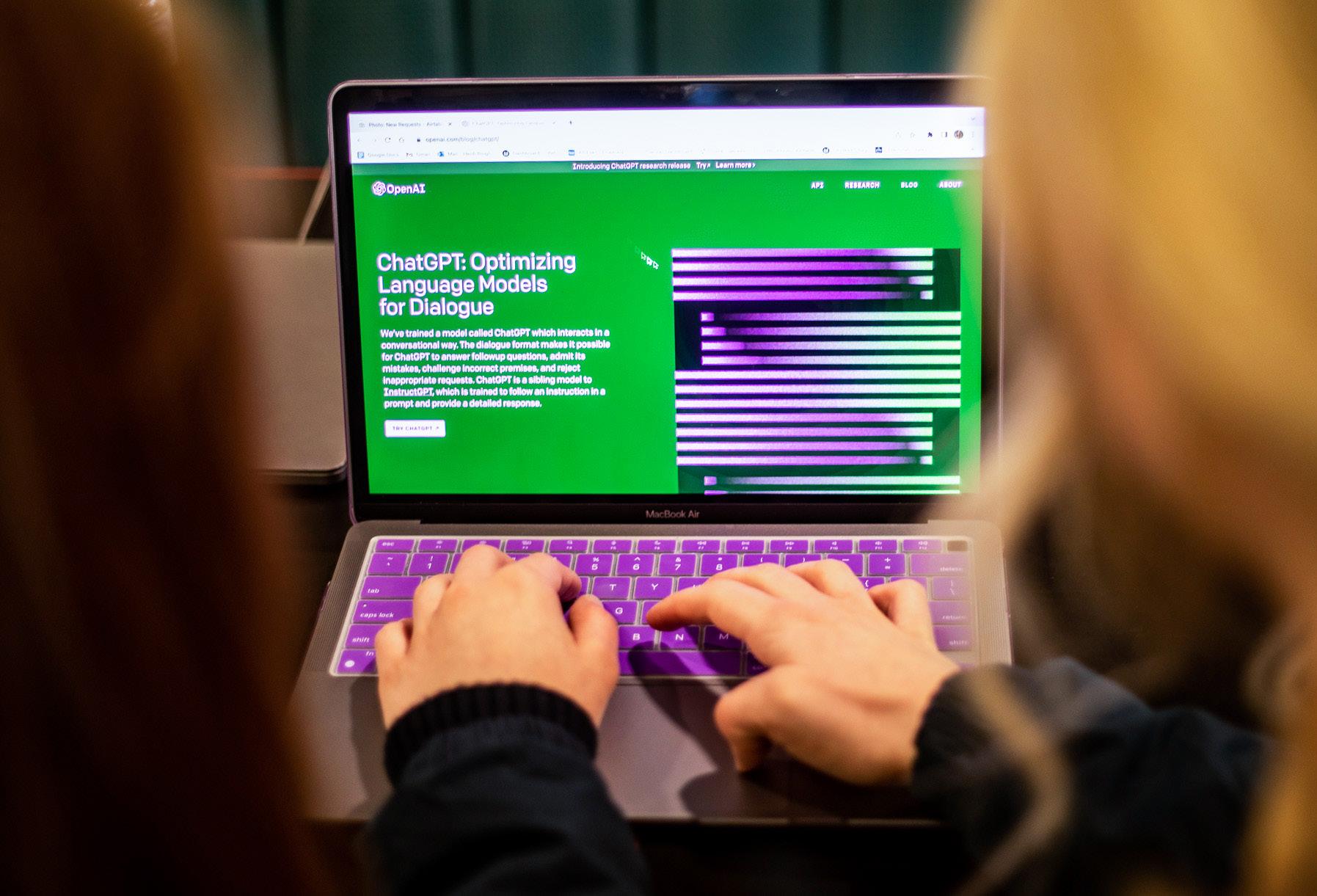
Carter Ottley is a junior studying journalism and political science. When Carter isn’t writing for the Statesman, he enjoys Chilis, reading and Imagine Dragons. He recently won a game of Kahoot.

 By Kate Stewart NEWS STAFF REPORTER
By Kate Stewart NEWS STAFF REPORTER
Hunter Warren, vice president of USU Blanding, said the campus is known for being a “home away from home” for many students. The campus is full of culture and diversity.


Warren said the majority of the close to 400 students who attend USU Blanding are Native American — a large percentage of those students being Navajo.
According to the USU Blanding website, “The Utah State University Blanding campus opens doors for residents in Utah’s remote southeast corner, including Native Americans in the Four-Corners region. It is a college campus small enough to keep students from getting lost in the crowd but with connections large enough to offer endless possibilities.”
Warren is from Red Mesa, a Navajo reservation in Utah. Since beginning his attendance at USU Blanding in the fall of 2017, he said he has always felt this “home away from home” feeling at his campus.
“When you come here, you can feel it,” Warren said.
Warren is finishing his master’s in social work and plans to graduate this spring.
This is Warren’s second year as VP. He said it is sad he will be giving it up because of graduation, but it’s also heartwarming that he has been able to serve for two years.
Following graduation, he aspires to either stay in Blanding or move back to Red Mesa for a career in social work.
“That’s why I’m going into the field of social work is to help my people, you know, get through whatever they need and just to be there to support them,” Warren said. Just like his aspirations of supporting others in his professional life, Warren has supported many students during his academic years.
Warren’s platform as VP promotes, supports and implements various campus and community resources for students.
He said he hopes his platform will help students gain knowledge that will help them succeed, enjoy their college experience and accomplish any positive goals they might have.
Currently, USU Blanding students interact with other USU students through online broadcasting classes.
Warren said he hopes students from Blanding can interact more with students from other USU campuses.
“I think that would be beneficial, you know, just getting to interact with other students — them learning from us, and us learning from them,” Warren said.
He said students interacting with each other through various activities would be beneficial for all students. These activities can help students gain different perspectives and know that they have a “friend on the other side of the state.”
As VP, Warren said his main responsibilities include being a representative for students, addressing student concerns, helping maintain a positive environment on campus and being a support for everyone.
Additionally, Warren said he makes agendas for meetings, helps promote campus activities, attends various meetings and gives tours. He also keeps track of functions, activities and budgeting.
Warren said he is passionate about promoting the campus and community resources available for students during their collegiate years.
He said some of his favorite aspects of his
job are being a part of a team and helping with events that stimulate positive student interactions.
Warren also said one of the best parts of his position is being able to see students happily participate in activities he planned with his team.
Warren has enjoyed being an Aggie at Blanding because of the people he has met, the experiences he has had and the people he gets to interact with through his position.
He loves being an Aggie and the “home away from home” feeling fostered at USU Blanding.
 By Alivia Hadfield NEWS STAFF REPORTER
By Alivia Hadfield NEWS STAFF REPORTER
Rep. Christine Watkins proposed a bill to change Utah State Eastern’s name to Utah State Price.
Since December, the bill has been introduced in the 2023 General Session of the Utah Legislature, where it now sits on the House Rules Committee. However, it looks like the bill will not make it past this point in the session.
In an email with the Statesman, Watkins wrote, “The bill is on hold and not going anywhere. The constituents supporting it changed their minds.”
Watkins explained why the constituents dropped their support for the bill: “Someone talked about the optics of Eastern vs. Price. Large area vs. small city area. Something along that line.”
Watkins declined to schedule an interview or answer any more questions.
“Honestly, there isn’t much more to say,” Watkins wrote.
“I agree with the people that say that it’s not super necessary,” said Savana Brown, a USU student. “I guess it confines it more to a specific area instead of being representative of a larger population. So I do think it’s a little odd that they’re changing it, but it doesn’t matter to me too much overall.”
If the bill were to pass, it would be the fourth time the eastern college has seen a name change.
Before USU Eastern was known as a Utah State school, it started as Carbon College in 1937, where it
welcomed 100 students in the first year.
The next twenty years brought change as the school struggled and eventually became a branch of the University of Utah for four years.
During those four years, a bill passed through the legislature to change the name from Carbon College to the College of Eastern Utah, or CEU. This event marked CEU as the first name change.
“The name change brought a greater acceptance for the institution by the people of southeastern Utah and
JAN. 19 — Fourth grade student at Edith Bowen Elementary told their mother that another student had a pocket knife at school. Details of the alleged weapons offense were obtained by officers who called and spoke with the mother of the student. Officers contacted the principal who is aware of the allegation. The call was changed from a “Weapons Offense” to a “Citizen Assist.” No further action taken.

JAN. 19 — Female student reports leaving her wedding rings in her jacket, in the locker room, in an unlocked locker, which she worked out. After leaving the Fieldhouse, the student reported her rings were missing from jacket. Due to the high number of people entering and leaving the locker room at the time, we could not narrow down specific suspects to interview.
allowed for the expansion of the college into that area of the state,” according to the Utah Centennial County History Series - Carbon County 1997.
The college would see its subsequent rebrand when the Utah Legislature signed a bill to have CEU merge with Utah State University in 2010. The school would then be known as Utah State University — College of Eastern Utah.
According to Utah State Today, many celebrated the change.
“Dignitaries from around the state and community members from Price gathered last weekend to celebrate the unique partnership between Utah State University and College of Eastern Utah — a celebration that included a ceremonial bill signing by Utah’s governor,” the article stated.
It would be the first time in Utah’s history two long-established institutions would merge.
In 2013, the legislature officially changed the college’s name to Utah State University Eastern. Many students and professors were starting to call the institution USU Eastern. The change would “merely formalize the shortened version already in use,” according to the article.
Alivia Hadfield is a first year student at USU and loves being an Aggie. Her other passions include songwriting, reading and competing in pageants.
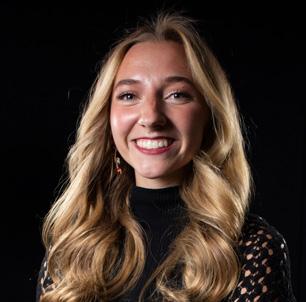
— Alivia.Hadfield@usu.edu
JAN. 20 — Male student send unknown alleged female on Instagram sexually explicit photos. Alleged female threatened to send family members the images if he didn’t send money. Male student sent money through CashApp and Zelle, then realized it was a scam. The bank was unable to recover male victims’ money. The Instagram account and related phone numbers are fraudulent, and investigation results show the account to be outside of the United States. (PLEASE DO NOT SEND NUDE PHOTOS TO ANYONE, BUT IF YOU MUST, VERIFY YOU KNOW AND TRUST THE PERSON YOU ARE SENDING THEM TO.)
*If you have any more information regarding these cases, contact the USU Public Safety Department at 435 797-1939. Summaries are from USU Police Chief Blair Barfuss. You can find these and other USU reported crimes at www.usu.edu/dps/police/daily-crime-log
Faculty, staff, students and the general public were given the opportunity to provide input to the Utah State University Presidential Search Committee at three meetings held on Jan. 25 and 26, the first few of six total meetings planned to receive feedback from the USU community.
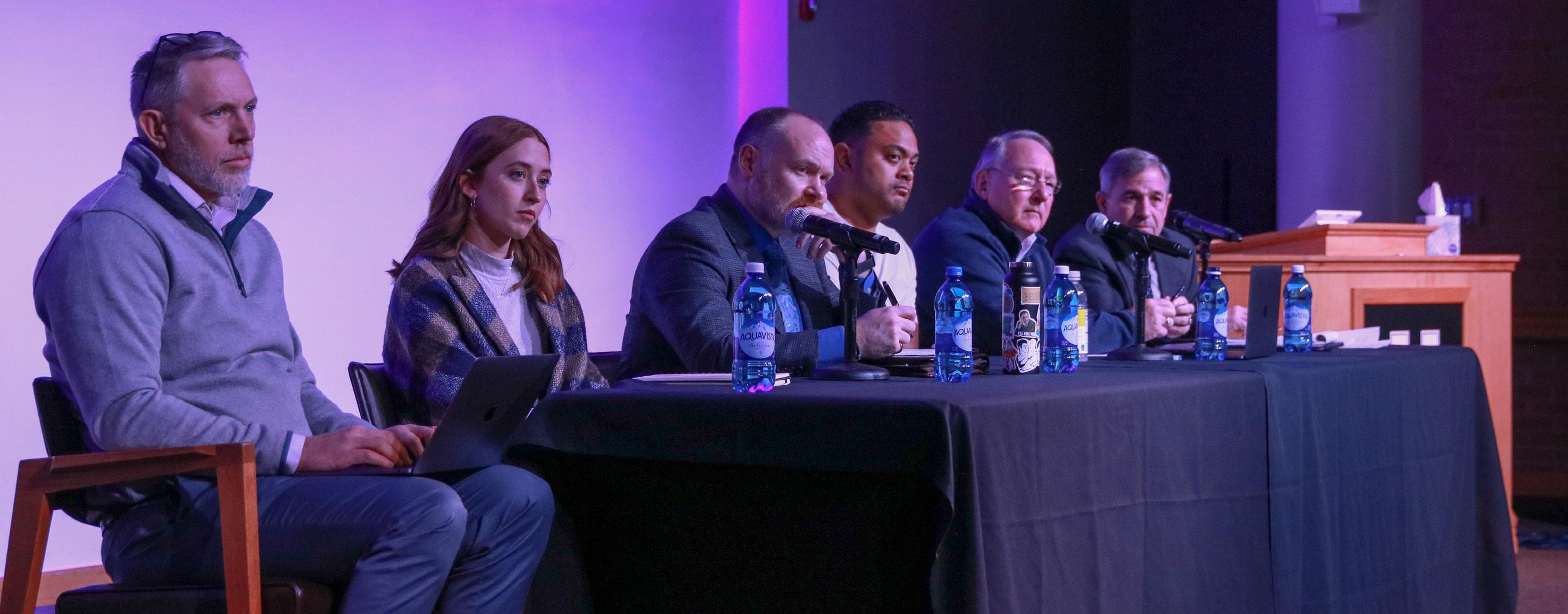
The input will be used to create a “presidential leadership profile,” a list of things people would like to see in the next president.
At the meeting on Jan. 25, multiple faculty and staff members asked for the new president to demonstrate a commitment to diversity, equity and inclusion.
Cree Taylor, the special assistant to the dean for Diversity, Equity, and Inclusion in the USU College of Humanities and Social Sciences, emphasized that it’s important to ask what the next president will do to help students, faculty and staff feel their commitment to DEI.
“We want a president who shares these commitments that we have written down to diversity, equity and inclusion,” Taylor said. “I'm also curious about those actionable steps that they will take for the students, the grad students, the staff, the faculty, so they feel that commitment.”
Multiple attendees also asked that the new president recognize the importance of USU’s staff.
Matthew Wappett, the executive director of the Institute for Disability Research, Policy & Practice at USU,
said staff is the only group not represented on the search committee, even though they are the largest employee group at USU.
“There is a huge need for the new president — when they come in — to recognize the importance and the central role the staff play in making the university function as a whole,” Wappett said.
Felicia Gallegos, the outreach coordinator for the Sexual Assault and Anti-Violence Information office, said sexual misconduct should be at the forefront of conversation when searching for the next president.
Other topics brought up by faculty and staff included sustainability, mental health, fundraising, treatment of graduate students, the religious climate of Utah, research, and relationships with outside groups, including the Utah Legislature and tribal communities.
At a meeting on the afternoon of Jan. 26, students shared some of their preferred qualifications for a president: someone who would encourage a culture of professionalism, respect freedom of speech and see students as a person rather than a number. Multiple students brought up increased financial support with rising inflation.
Ph.D. student Mudasir Mustafa asked why there wasn’t more diversity on the panel for the presidential search, pointing out that there’s only one student on the committee out of the 18 members.
“It might be worth looking at maybe adding more students, adding nontraditional students and adding students from different racial and gender backgrounds, and maybe adding international students,” Mustafa said.
A meeting for the general public to give feedback was held on Jan. 26 later in the evening.
Cache County executive David Zook said he views the president of USU as a valuable member of the community and suggested five ideal characteristics: the president should love the students, protect the students, love Cache Valley, allow for and encourage a multitude of opinions on campus and be innovative.
Other members of the community said the next president should "hit the ground running on Capitol Hill” and have an understanding of trauma related to sexual assault.
A virtual meeting for all USU stakeholders statewide was held on Jan. 27. USU Uintah Basin stakeholders and USU Eastern stakeholders will each have a meeting on Feb. 2.
Feedback can also be emailed to usupresidentialsearch@ushe.edu or submitted online as an anonymous comment at ushe.edu/usu-president-search-feedback.
Darcy Ritchie is a senior studying journalism and history. When she isn’t dreaming of the Wild Wild West, Darcy is throwing a very specific themed party or planning her marriage to a middle-aged celebrity.

Friday February 3, 2023 9P.M.-1A.M.

Tickets available in TSC Card Office or Online
$10 students | $20 public



CASINO | DANCE | FOOD | SODA BAR

Sponsored by





Utah State University has 30 campus locations across the state, offering a variety of academic programs. Some students choose to begin their academic journey at one campus and can complete their degree at others.

Tyler Elgiar started his college career at Vernal Campus, and decided to get his bachelor’s degree in wildlife ecology and management. After finishing his degree, he started working with the air quality team at the Bingham Research Center in Vernal and pursued a master’s degree in toxicology at USU.
“At the end of that degree, I started working with the air quality team at the Bingham Research Center, and my boss convinced me to pursue a master’s degree, and toxicology seemed to fit the bill with air quality and some of the stuff I did previously,” Elgiar said. “The courses that I needed to attend to complete my toxicology degree weren’t being offered at the Vernal campus, so I moved to Logan.”
Many students, like Elgiar, started pursuing their degree at one of USU’s statewide campuses. Some of them pursue further education beyond a bachelor’s degree, which becomes more difficult for smaller campuses to facilitate.
However, USU’s statewide system allows students to pursue all degrees by increasing offered courses.
Seth Lyman, the director of the research center, said moving to a statewide campus is easier when the student has faculty and staff contacts in both places.
“If it’s just in an academic way, then I know at the statewide campuses, the advisers — the academic advisers — have access to and help students with classes



on both campuses,” Lyman said.
Elgiar said the Vernal campus is small, which allowed him to have close one-on-one meetings with professors.
“I was able to participate in a variety of different internships, which seems a little easier at the smaller campuses than the main Logan campus,” Elgiar said.
Now attending graduate school in Logan, Elgiar said being around graduate students and others in his program is a highlight of being on campus.
Increased online learning has provided more course accessibility for students across the state. However, Elgiar said that some courses were not able to be provided virtually because of the small class sizes at the Vernal campus.

Elgiar expressed that opportunities created by USU’s expansions helped him to further his education and work towards his goals.
Elgiar said the ability to have close ties with professors and the internship opportunities available make the statewide campuses a great way to create a solid academic foundation.
The number of courses available to students through the main campus in Logan allowed Elgiar to pursue his master’s degree through USU and further his education and career.
“Try to have a solid plan, pick out what classes you know you’re going to need, and make sure that that campus offers them all,” Elgiar said. “If you’re in an undergraduate program, that probably won’t be too big of an issue. Just work hard and keep pushing through.”
— A02360639@usu.edu


Dayne R Teigeler, AKA “Great Dayne”, has a deep love for music and the industry. “I have managed a few small bands, helped with merchandise creation and have been head of a few Street Teams for bands/promoters and local venues. I have owned my own record store. I also DJ all vinyl 80’s sets for parties.” Robert Linton, AKA DJ Venkman, is not only a co-host of Dark Aggie Radio, he is an associate librarian and USU alumni. He co-founded Why Sound music venue in 2007. Robert is a musician, and has released seven albums.


Find You’re Gone Wolfsheim



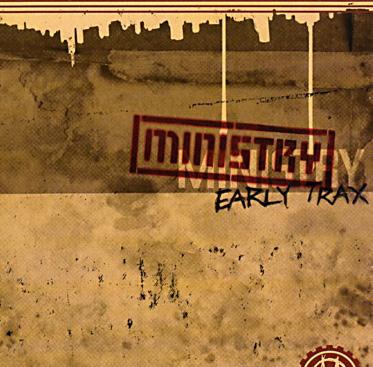
Utah State University Blanding is improving the college experience of low-income and first-generation students through the federally funded TRIO grant and Student Support Services.
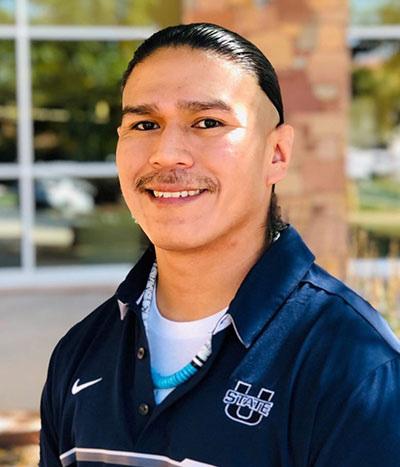
TRIO represents the three primary programs originally funded in Title IV of the Higher Education Act: Upward Bound, Educational Talent Search and Student Support Services.
Kimberly Hiatt is a director of TRIO Student Support Services on the USU Blanding campus.


“TRIO Student Support Service project is a federally funded project that serves income-eligible, first-generation students, as well as students with a disability,” Hiatt said. “Our particular project was awarded to serve 185 students.”
The USU Logan campus has a TRIO and SSS project which assists four-year students. According to Hiatt, the Blanding branch serves two-year students working towards their associate degree.
“We make sure that our students have that extra help with tutoring and scholarship and Pell grants and financial literacy,” Hiatt said. “And having that extra success coordinating going on so that they never — they should never feel lost.”
Hiatt’s experience in college allows her to understand what it is like for her students.

“I myself am a first-generation college student,” Hiatt said. “And we had nothing like this in my junior college in California, so I was all on my own.”
Tylan Dee is an academic adviser and success coordinator for students at the Blanding campus. Dee recently replaced Renee Palmer, an employee at Blanding for over 30 years.
“Big shoes to fill,” Dee said.
He said he always had a strong interest in advising.
“I’m very familiar with helping students, basically all-around helping students with everything they need, because I am a stu-

dent myself, and a lot of our students are Native American,” Dee said. “So a lot of the scholarships I applied for, they applied for.”
According to Dee, his experience has helped him to relate to the students he serves.
“I would say they’re one of the best student support service groups that our campus offers, or that any campus could offer,” Dee said. “I believe, for our campus, the TRIO’s success has contributed to the experience and the willingness of our TRIO staff to go above and beyond what they do and what their specialties are.”
Dee said the women who work in TRIO are great at offering students the aid they need.
“I’ve noticed, being able to work with them, that they are very excellent at everything they do,” Dee said. “Whether it’s advising or coaching students.”
Kelsey Bushman, the learning specialist of Blanding’s TRIO program, said Blanding offers specific classes for TRIO students.

“They’re called habits of mind classes,” Bushman said. “The first generation and low-income, they may not have had the advantages that other students have had. So, we kind of try to fill some gaps.”
Bushman teaches Reading for College Success, a course designed to help students navigate their textbooks.
“I teach them reading strategies for textbooks,” Bushman said. “A lot of times we don’t approach reading a textbook differently than we approach any other type of reading, which doesn’t really work.”
Bushman said SSS can help students throughout their college careers.
“It’s a team,” Bushman said. “There’s this team of people that will help a student with anything.”
Bushman said since everyone working for SSS is in the same hallway, they can refer students to each other very easily.
“I always say ‘don’t be afraid to ask for help’,” Bushman said. “There’s an army of people that will help if a student just asks. Including instructors anybody is willing to. I feel like at USU, we’re a big family, and any-
body’s willing to step up and help anybody.”
Hiatt said many students will come in not knowing what their strengths are. In the TRIO program, students take the CliftonStrengths Assessment.
“We want our students to know what our talent themes are — what their strengths are,” Hiatt said. “And then to know them, to be able to name them, and they claim them and aim them in their education and just in life. And what we find is that it increases their well-being when they know that. This is where I’m powerful.”
Hiatt said students knowing their strengths encourages other students to find their own.
“Not every student is going to be successful in the same way, but if they learn where they do engage in their power, then they do engage in the college experience,” Hiatt said. “Research has shown that when students are more engaged in their college experience, they’re more successful.”
Many people assume USU Blanding doesn’t have student housing, according to Hiatt.
“Blanding has dorms here,” Hiatt said. “We’re a little community that supports the college student.”
Hiatt encourages any low-income or first-generation student to consider attending the Blanding campus and applying for TRIO.
“If a student is reading this, or a family member, and they know someone who is a first gen student or is income eligible, and they want to have a unique small-town experience where they don’t feel like they’re just a number but a real person, and they get this little family that surrounds them,” Hiatt said. “USU Blanding is a campus to come to and they have those supports.”
The first statewide campus of Utah State University was established in Roosevelt, Utah in 1967. There are now 30 campuses and a variety of centers throughout the state of Utah, including three residential campuses — Logan, Price and Blanding. Statewide campuses offer over 150 certificates, degrees and licenses.

Dana Rhoades, marketing director for statewide campuses, said they “serve community needs.”
“I think the statewide campus mission is really important, because we provide access to students to higher education no matter where they are,” Rhoades said. “They have the opportunity to better their lives and also stay in places they love. And one of the things I think is really unique about statewide campuses is they are strong in their partnerships with their local community.”
Statewide campuses across 85,000 square miles provide students with opportunities, wherever they live in Utah.
“The state really is our classroom,” Rhoades said.
In a report provided by Rhoades, fall 2022 enrollment counted 5,826 undergraduate and 841 graduate students at various statewide campuses — where students have access to almost all the same services as students in Logan.
Rhoades said students are also matched with a student success coordinator, which is unique to statewide campus locations.
“They are there to help support them in career decisions, preparing for classes — anything a student might have a question about with their student experience, but it’s primarily preparing them for job opportunities, connecting them with internships and preparing them in their career decision-making skills,” she said.
Each campus has counselors, therapists, testing services, money management centers, veterans affairs and financial aid offices, disability resource centers and career design centers.
“A statewide campus student really has a team of

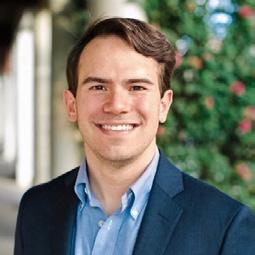
support,” she said. “They have their academic adviser to make sure they are in the right classes, and they have a success coordinator that’s located on their campus. They really help to facilitate whatever that student needs, whether it’s tutoring or counseling and psychological services. This team is like their liaison to how statewide campuses can support them.”
Among the services provided at statewide campuses is the USU Extension program.
“What’s important to note about is that both of those two entities embody Utah State’s land-grant mission,” she said. “It’s two-pronged, where we have statewide campuses where you can go earn a certificate, and we facilitate the same access to higher education as anywhere. What’s different about Extension is that their primary focus is community education.”
Founded in 1914, USU Extension’s primary charge and focus is community based, including programs for 4-H, agriculture and natural resources, business and community, gardening, finance and wellness.
The Extension website states, “Utah State University Extension provides research-based programs and resources with the goal of improving the lives of individuals, families and communities throughout Utah. USU Extension operates through a cooperative agreement between the United States Department of Agriculture, Utah State University, and county governments.”
Kelsey Braithwaite, nutrition ambassador for Create Better Health, has been working for USU Extension for a year and a half.
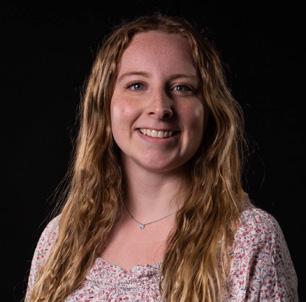
Create Better Health is run through every USU Extension office throughout the state. Their goal is to teach low-income individuals and families how to eat healthy, and live a healthier lifestyle in simple and affordable ways.
“The USU Extension has so many resources for the community. This is super important because a lot of the people I work with couldn’t afford to go to classes like this otherwise,” Braithwaite said.
Leah Call is a junior pursuing her degree in print journalism. In her free time, she loves finding new music to jam to and is always on the lookout for the perfect iced chai tea.
— A02395831@usu.edu

What’s green, valuable and something everyone wants? Money. And the Utah State University Men’s Rugby club is no exception.
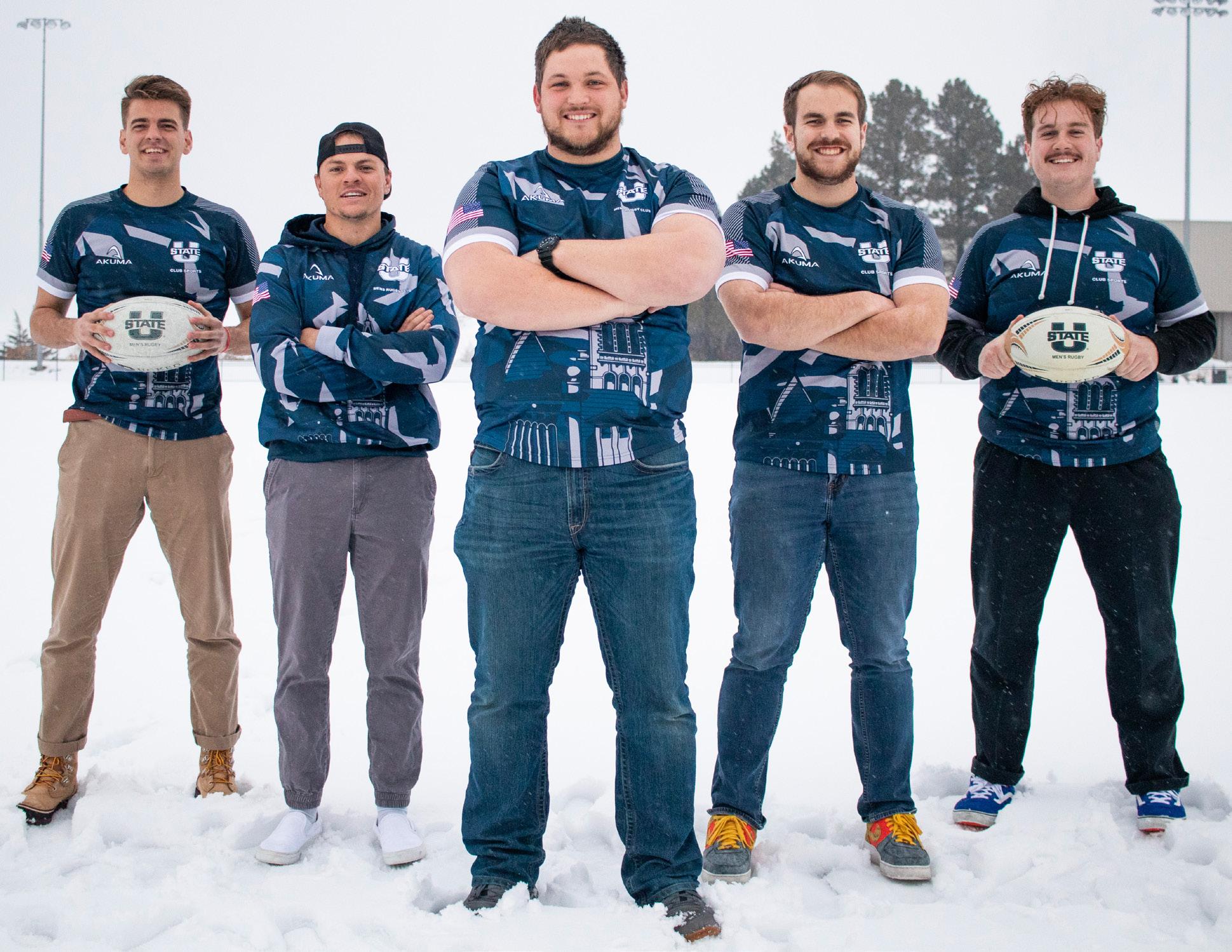
Last year, the club competed in their fall season and made it to tournaments in the spring. Because of success in their games, they were invited to travel to play in the national championship. However, they had to pass after realizing they couldn’t afford to get there.
Members of the team explained this wasn’t a one-time thing. Funding has been a battle they’ve been fighting for a long time, especially since they haven’t had a sponsor in close to 10 years.
The team falls under the category of a club rather than a sport. This doesn’t just mean less recognition or less of a fanbase; it also means less funding from the university and more money out of the players’ pockets.
Competitive club sports are under USU Campus Rec, which provides some funding to the team each year. Campus Rec employee Amanda Bray, the assistant director of healthy lifestyle programs & community engagement, said the funds are distributed between all of the competitive club sport teams.
“What I’m able to request for funding is what I have to disperse amongst 25 clubs,” Bray said. “Based on what the club’s needs are and their expenses, that’s how we decide on the funding and what every team got. I wish I could give them the world, like — I really do.”
Bray said it isn’t just about funding — budgeting is also a huge factor.
“They are actually getting more funding than what a lot of the clubs do,” Bray said.
According to the budget numbers provided to the Statesman from Bray, last year the team was given $1,000 in allocations from USU, had $4,359 in rollover funds from previous years, gained $14,525 from membership fees and fundraised $100.
But after spending $2,220 in membership dues, $220 on tournament registrations, $7,468 on uniforms and apparel, $7,148 on travel, over $200 in officials’ fees and $458 on other things like meals and equipment, the group had no money left for nationals.
This year, the team was allocated $1,500 from USU, had $63 in rollover funds, gained $10,850 from membership fees and fundraised $2,543.
So far, they’ve spent $8,396 on uniforms and apparel, $771 in officials’ fees, $5,820 on travel and $331 on other things like team meals. Once again, there’s no money to spare.
“We get new uniforms every three years,” wrote Franco Tellechea, a first-year student and athlete on the team. “As for the travel, we spent that much for our away conference game. All of those were paid for through our player dues. The budget the school gave us was not enough to cover our CRAA fees —what we have to pay to be in our conference. All other fees/budget has been out of the players’ pocket.”
Bray said each club will receive different amounts of money based on their needs and budget proposals they submit each year, detailing all of their wants and fees, but the money will always be equal for the men’s and women’s teams of a club.
USU Women’s Rugby club also qualified for nationals last year, and they did make it there to play. If they receive the same funding, how is that possible?
“They had the funding to do it because they had membership fees due at $6,700, and they went out and fundraised a little over $4,000 to help offset those costs,” Bray said.
Women’s rugby also spent less than $2,000 on apparel and had over $4,000 in rollover allocations that year. Acknowledging their differences in budgeting, the possibility of missing nationals again is a very conscious thought in the mind of the men’s team.
But to even get to that point, they have to make it to specific tournaments — like the upcoming LA Sevens — to qualify.
Club president Michael Woolley, who is in charge of the budget, explained the group has already had to sacrifice this year, missing their bowl game against Ohio State due to money constraints.
“Not having money limits who we can play, where we can play, and limits our progress as a team,” Woolley said. “It caps us out.”
The rugby team, which can consist of anywhere from 30 to 50 players, went one and five this fall, playing teams like Brigham Young University and University of Utah, who are ranked in the top 20 nationally.
Men’s head coach Morgan Smith said not only is it hard getting stuck in a rut playing the same four teams, including those two, but it’s hard to compete against them when those teams have more money going for them.
Regardless of their record, the team agreed they can have a great performance in these upcoming tournaments — and prove their worth to other teams and to the USU community — if given the chance.
Tim Miller, a junior on the team, said he believes if students, alumni and Cache Valley residents knew how good they were, they would be more willing to help fund them, so they hope to show their value this year in these tournaments.
“I think it’s like an investment,” Miller said. “You want to put more money in good investments. So if you see a team that plays really well, you’re going to want to help them out more.”
Smith agreed with him.
“Winners bring money, that’s how it is,” Smith said.
Team members have tried to take matters into their own hands through their personal social media accounts, encouraging people to donate.
They are also doing their own work to plan fundraisers with local restaurants and reaching out to find sponsorships.
Alexander McCain, a first-year student on the team and the member in charge of fundraising, said they need at least $5,000 by the end of February and another $5,000 after to pay for nationals and the tournaments needed to be eligible for nationals.
If they don’t raise the money, the team will likely experience deja vu from last year and have to
continue improving their skills at home in the snow.
Smith said this isn’t only extremely disappointing and frustrating, but it can affect incoming students and prospective players from joining the rugby club.
“We’ve definitely lost players due to lack of funding because they feel like ‘We can’t do anything,’” Smith said.
McCain admitted it can prevent good high school players from coming to USU because no one is eager to join an unestablished program with a low chance of being nationally recognized.
But for the players that stick through it, the funding struggle hasn’t affected their love for the game or their desire to win and play to their best ability.
Bray reiterated that the university and Campus Rec have no desire to limit these players, and said they are always there to offer advice on budgeting. They encourage every club to do the work for fundraisers and find sponsors.
McCain said the team has been sending out sponsorship letters and has “a lot pending.”
Rugby isn’t the only club who has to look elsewhere for more money. Hockey, lacrosse, golf and baseball are just a few examples of other clubs who have to fund themselves and have student captains and presidents who manage what money they do have.
The team explained their goal is to create a new rugby culture at USU that other Utah universities seem to be lucky enough to have.
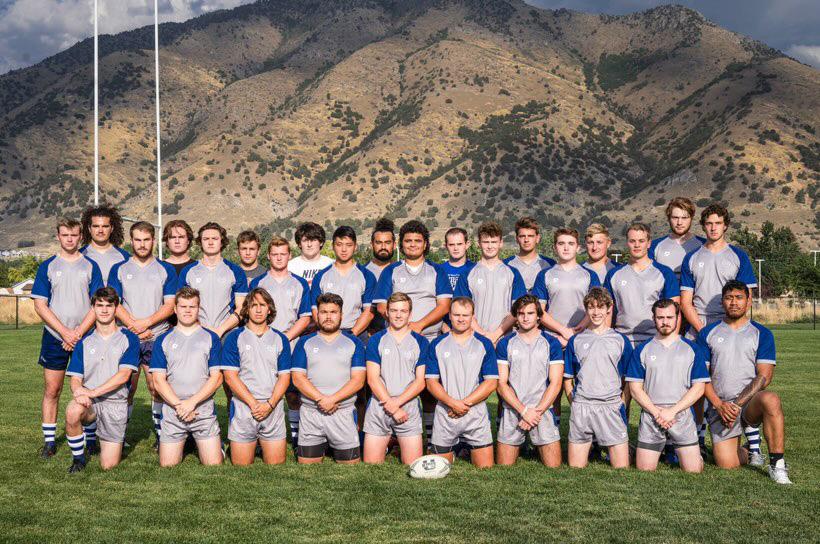
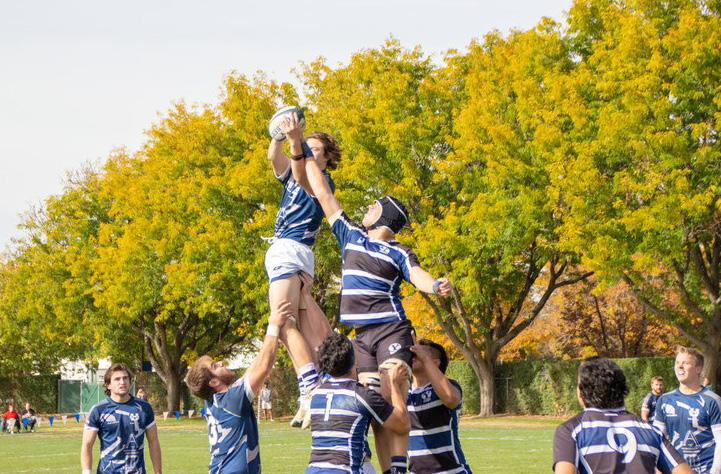
“They have a culture of winning and that leads to their alumni wanting to donate and being willing to be a part of the program,” Smith said. “This school has had the culture of ‘Play my two years, and then I’m going to quit and never think about rugby again.’ We’re trying to change that culture to a culture of winning.”

Winning or not, Tellechea said it’s about repping the Aggies.
“I don’t think it’s about going out and winning these (tournaments), it’s about representing Utah State. We want to show that yeah, Utah State can keep up,” Tellechea wrote.
To donate, visit givecampus.com/campaigns/30111/donations/new and designate Men’s Rugby Club.
Jacee Caldwell is a broadcast journalism major who is a beach girl at heart but will never turn down the opportunity to show off her skills on the slopes. Jacee loves Colorado boys, getting sunburnt and making her boyfriend watch “The Bachelor.”

— jacee.caldwell@usu.edu
Men’s
Feb. 1: vs. New Mexico
8:30 p.m., Dee Glen Smith Spectrum
Feb. 4: @ Colorado State
6 p.m., Fort Collins, Colorado
Women’s
Feb. 2: @ Colorado State
11 a.m., Fort Collins, Colorado
Feb. 4: vs. Nevada
2 p.m., Dee Glen Smith Spectrum

Men’s
Feb. 3: vs. Eastern Washington
11 a.m., Sports Academy
Feb. 4: vs. Grand Canyon
12 p.m., Sports Academy
Women’s
Feb. 4: @ Idaho State
Pocatello, Idaho
Feb. 5: vs. Utah Tech
10 a.m., Sports Academy
Feb. 3: @ Boise State
7 p.m., Boise, Idaho
Feb. 4: Speed and Power Meet
Logan
SUBMITTED PHOTOS By Heidi Bingham STAFF PHOTOGRAPHER— A02396137@usu.edu






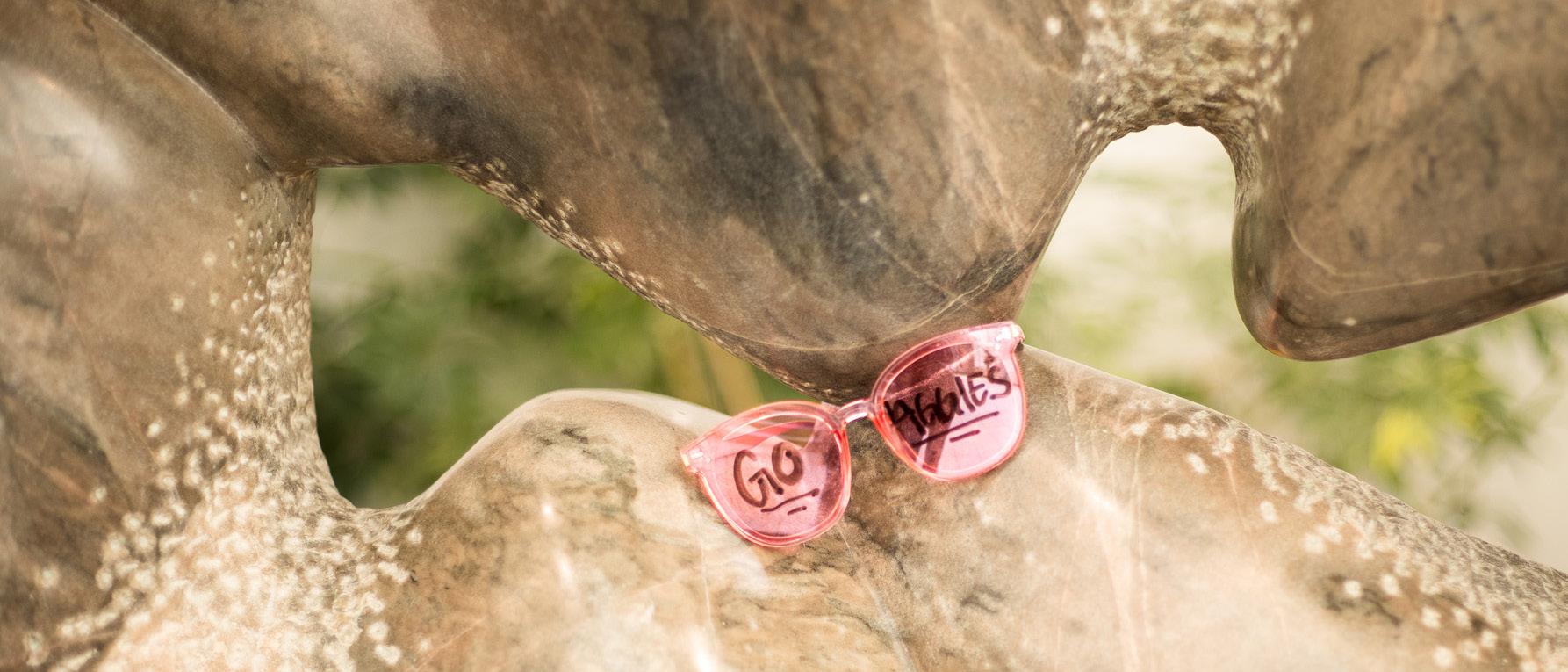


Utah State University has now made Supplemental Instruction available to students throughout all its Statewide Campuses. Supplemental Instruction (SI) is a peer academic support program offered to students that are registered for breadth education courses.

“Students who attend SI develop lifelong learning skills that help them succeed far beyond the classroom,” said Kenyon Gale, student coordinator for SI. “Students will receive peer support from a fellow student who has already taken the class and excelled academically. SI leaders remember clearly what it was like to take the class and are able to communicate in a relatable way. Research shows that the more sessions a student attends, the greater their grade increase.”
Supplemental Instruction is a service that students have already paid for through their tuition and fees. Through regularly attending SI sessions and using SI as a resource, students have been able to build confidence in their abilities in studying, conversing, socializing and preparing for assignments and exams in ways that let them feel less insecure and uneasy about college courses.
“Supplemental Instruction has a proven track record to help improve students’ academic performance,” said Kevin Hurst, director of students at USU Eastern. “We are excited to bring this program to USU Eastern so our students can take advantage of this wonderful resource. The adage ‘If you give a person a fish, you feed them for a day. If you teach them how to fish, you feed them for a lifetime’ applies to Supplemental Instruction and other great programs we offer students.”
Leaders at USU Statewide Campuses are excited to see this program open up to students across all of USU’s campuses. They look forward to seeing the success students
will have as they take advantage of this resource.
“Supplemental Instruction is a proven method to support students who are in a challenging class,” said Kristian Olsen, associate vice president for USU Blanding.
“Students who engage in SI are more likely to do well, retain the information they are being taught, and pass their class. As knowledge builds upon knowledge, SI assists students in not only passing a class, but truly understanding and learning the information. This will help them as they progress through college and onto their chosen career.”
According to Heidi Kesler, executive director of USU’s Office of Academic Belonging & Learning Excellence, students who are SI leaders have been instructed to conduct at least one session every week over Zoom. Students enrolled in any section of that course are invited to attend, with notifications of those sessions going out through Canvas. Kesler is hopeful that SI will continue to grow and SI leaders will eventually include students who attend Statewide Campuses.
“Eventually, I can imagine that we will have statewide students applying to be SI Leaders and they would support all students from whichever campus they are on,” Kesler said.
Administrators are looking forward to how students use the program and the success it will help them achieve. The key is to attend, which is the first step.
“For SI to be truly successful, students need to take advantage of the resources,” Olsen said. “Just as a car’s windshield wipers are no good in a rainstorm if the driver doesn’t use them, the same goes for SI. SI is a powerful service to assist students in getting more out of their classes. Students who choose to utilize SI will see grades improve and their understanding of the course material increase. The key is that students will need to choose to utilize SI.”
For more information on USU’s Supplemental Instruction program, visit www.usu.edu/supplemental-instruction.
BLANDING, Utah — Utah State University Blanding’s Navajo Hogan, completed and blessed in November 2021, has now earned an award from the Associated General Contractors of Utah. In an award ceremony on Jan. 19, 2023, the AGCU awarded USU Blanding the 2022 Award of Excellence for Worship Project of the Year. USU Blanding Associate Vice President Kristian Olsen was on hand to accept the award. He was joined by USU Blanding students Hunter Warren and Rianna James, as well as Student Involvement Coordinator Shilo Martinez.

“This is a wonderful award and we are grateful to have our Hogan nominated and selected as the Worship Project of the Year in the state,” Olsen said. “This would have not happened without a wonderful team of people, especially the builders Benedict and Rena Daniels. They are truly artists. The
Hogan is an important addition to our campus. It gives our students a place to meditate, reflect, worship and gather. It is a place of meaning and belonging. We hope that it inspires students and community members for
many decades to come.”
The project was overseen by Tri-Hurst, under the direction of lead builders Benedict and Rena Daniels, both of whom had experience building many Hogans across the Navajo Nation.
A Hogan is a holy sanctuary and a place to perform ceremonies and keep life in balance. It is also a place of respect and learning. The Hogan is considered a holy place, which brings harmony, happiness and material goods. It is considered to be a living being (iina’), which, when treated with respect, will protect its inhabitants.
Sixty-eight percent of students on the USU Blanding campus are Native American, with more than 90% of those students identifying as Navajo. The Hogan was built as a way to honor USU Blanding students’ Native American culture and to be a welcoming resource to them. In congruence with USU’s mission statement, it also is a place for “cultivating diversity of thought and culture.”
“Who cares?”
This question echoes.
With ever-impending crises ahead, students wonder “why bother? Why get a degree, start a family, or make changes if the world will see so many violent environmental catastrophes in 25 years? Who cares?”
Anyone asking this wonders how things get better. DivestUSU are the students, faculty, and citizens of Logan answering. We believe the administration of Utah State University should accomplish sustainable action for current and future generations by divesting assets from the companies committing extreme pollution: the Carbon Underground 200.
Part of USU’s recurring expenses are funded from returns generated by assets donated to the university (called ‘endowments’). Endowments are invested across many companies, particularly energy companies, which are seen as promising investments. In 2021, USU’s endowment was approximately $510 million [source]. Like hundreds of universities across the globe, USU should distance itself from companies exacerbating climate disasters and reinvest their funds in ethical and profitable areas. This is called ‘divestment.’
Our four reasons for divestment:
1. Prevents Unethical Environmental Crises
Air pollution is a longstanding issue in Utah. Globally, air pollution kills 7 million people a year, and causes global respiratory issues and increased mortalities [source ; source]. Divestment would decarbonize the economy and disallow the operation of industries committing known, irreversible, and unethical harm to present and future environments.
2. Avoids Financial Risk Universities must act as prudent investors. By divesting, they avoid assets potentially becoming valueless through climate change, something seen in recent events. Quality investment options remain. Return differences between portfolios excluding and including fossil fuels are ‘statistically insignificant’. Newspapers, universities like the University of Maine System, the Unity College
System, and others-- even Catholic churches-- have divested without negative financial effects.


3. Demonstrates USU’s Ethical Integrity


Divestment allows organizations to engage with the local community about sustainability, and would demonstrate USU’s commitment to sustainable action. Though divestment, like any change, can incite public controversy, research has found increases in student pride and community interaction. Divestment aids the wellbeing of future community members and environments, who will feel the worst effects of ecological decline.
4. Fulfills Leadership Responsibility
The administration of USU cares about sustainability; they’ve committed to “improve efficiency [and] explore renewable energy options”. USU has signed carbon-neutral commitments. The Institute for Land, Water, and Air and Greenhouse Gas Steering Committee contribute important scientific work. The USU administration cares, but they can do more by divesting, which fulfills all necessary conditions for positive, sustainable progress.
So… “who cares?”
We do. And together, we can make good changes.
Help us make USU care right by supporting divestment from the Carbon Underground 200.
-DivestUSU
John Jensen represents DivestUSU, a group of USU students, faculty members, and members of the Cache Valley Community. They have been working to introduce a divestment movement to the administration of USU for a little over one year. They recently presented a resolution at to the faculty senate to receive their support; they passed an informational request to the board of trustees to determine the companies invested in fossil fuels that USU was affiliated with, particularly through investment.
— john.jensen@usu.edu